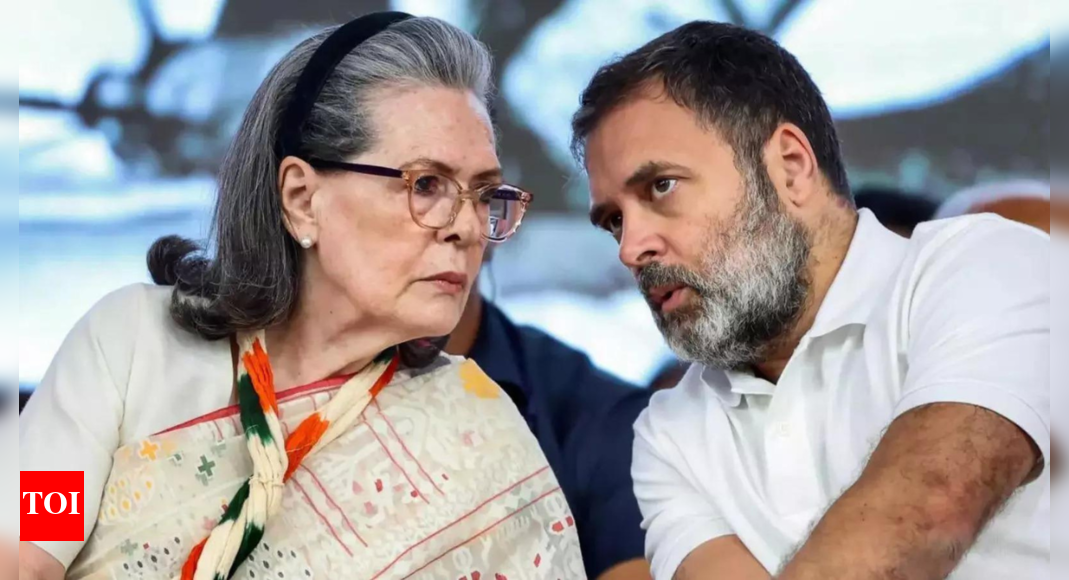A Delhi court has reserved its order until July 29 on whether to acknowledge the Enforcement Directorate's chargesheet in the National Herald money laundering case. The ED alleges Sonia Gandhi, Rahul Gandhi, and others conspired to fraudulently take over prop…
Why it matters
- The case involves prominent political figures, raising questions about accountability and transparency in governance.
- The outcome could influence public perception of the Congress party and its leadership amid ongoing political tensions.
- The Enforcement Directorate's role in investigating financial misconduct highlights the government's stance on corruption.
A court in Delhi has postponed its ruling on whether to consider the Enforcement Directorate's (ED) chargesheet related to the high-profile National Herald money laundering case, now set for July 29. This case has drawn significant attention due to the involvement of senior Congress leaders, including Sonia Gandhi and her son Rahul Gandhi, who are accused of conspiring to unlawfully acquire assets linked to the National Herald newspaper.
The Enforcement Directorate has put forth allegations suggesting that the Gandhi family, along with other associates, devised a plan to misappropriate the assets of the National Herald, a newspaper established in 1938 which has historical significance in Indian politics. The ED claims that this alleged conspiracy involved a series of financial transactions that were designed to benefit the Congress party at the expense of the law.
The investigation has sparked intense debate within political circles, with the Congress party vehemently denying any wrongdoing. Party leaders have characterized the charges as politically motivated, aimed at undermining the opposition party's credibility. This case has not only become a focal point of legal scrutiny but also a battleground for political rivalry, particularly with the upcoming elections in mind.
During a recent court hearing, the judge noted the complexity of the matter and the need for careful consideration before proceeding. The court's decision to reserve its order indicates the seriousness with which the judiciary is treating the allegations and the potential ramifications of the case. Both Sonia and Rahul Gandhi, who have been summoned multiple times by the ED for questioning, have consistently maintained their innocence, asserting that the case is a tactic employed by the ruling party to intimidate and silence dissenting voices.
The ED's chargesheet alleges a range of financial irregularities, including violations of the Prevention of Money Laundering Act (PMLA). This legal framework is designed to combat money laundering and ensure that those involved in financial crimes are held accountable. The Gandhi family’s alleged involvement in these activities has led to heightened scrutiny not just of their actions but of the inner workings of the Congress party itself.
As the court approaches its decision date, the political ramifications of this case are profound. If the court accepts the chargesheet, it could pave the way for further legal proceedings against the Gandhi family, which may have significant consequences for the Congress party's political future. Conversely, if the court dismisses the charges, it could strengthen the party's position and provide a boost to its leaders, who have faced increasing pressure from rival political factions.
The National Herald case is not just a legal issue; it symbolizes the larger battle between the ruling Bharatiya Janata Party (BJP) and the Congress party. With allegations of corruption and misuse of power flying back and forth, this case serves as a litmus test for political accountability in India, especially in the context of the ongoing war of words between the two major political parties.
As the July 29 date approaches, all eyes will be on the Delhi court, where the decision could influence not only the future of the Gandhi family but also the broader political landscape in India. The case underscores the importance of transparency and integrity in political financing and the necessity of holding powerful figures accountable for their actions. The outcome will resonate deeply among the electorate and could shape the dynamics leading into future elections.











